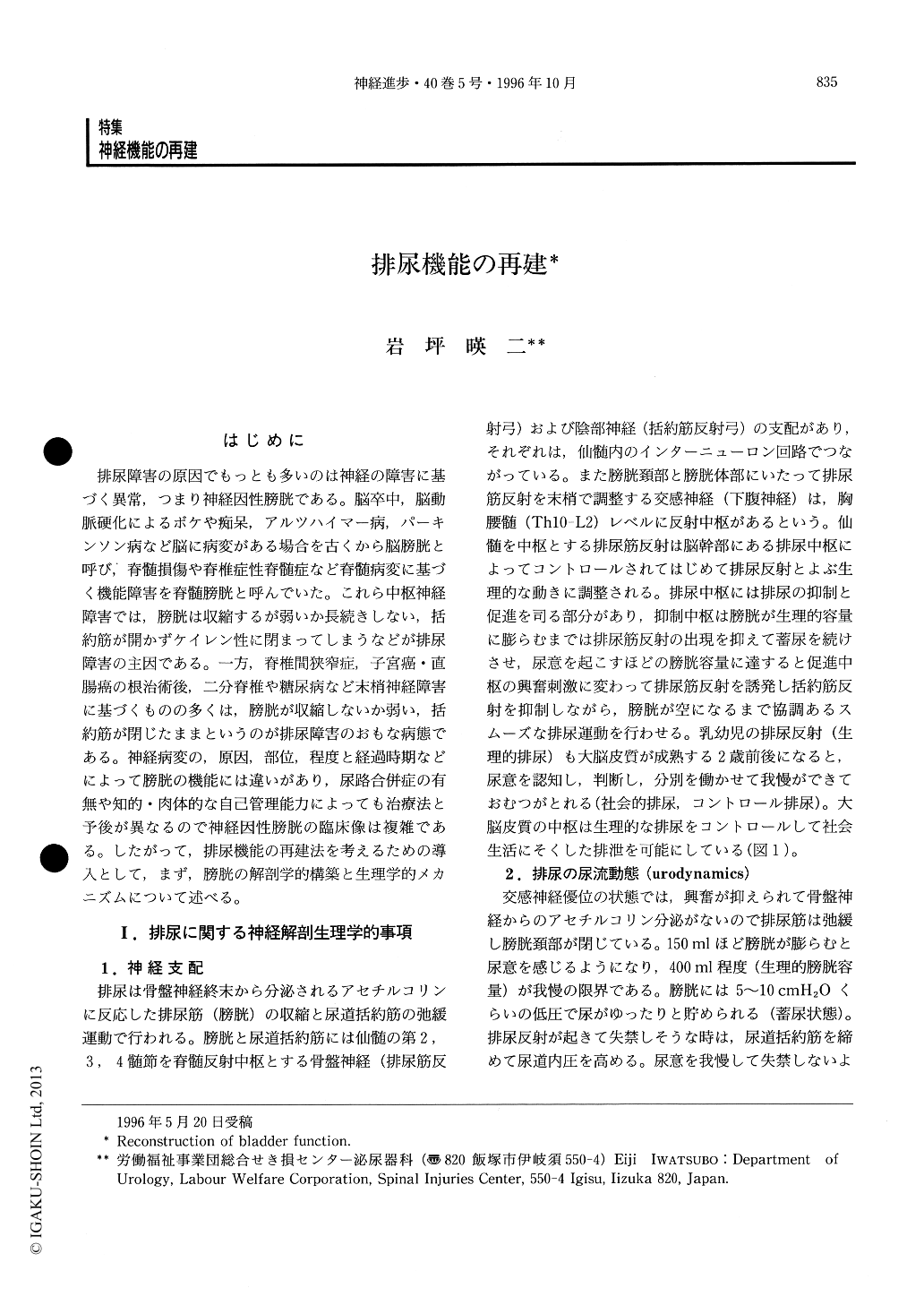Japanese
English
- 有料閲覧
- Abstract 文献概要
- 1ページ目 Look Inside
はじめに
排尿障害の原因でもっとも多いのは神経の障害に基づく異常,つまり神経因性膀胱である。脳卒中,脳動脈硬化によるボケや痴呆,アルツハイマー病,パーキンソン病など脳に病変がある場合を古くから脳膀胱と呼び,脊髄損傷や脊椎症性脊髄症など脊髄病変に基づく機能障害を脊髄膀胱と呼んでいた。これら中枢神経障害では,膀胱は収縮するが弱いか長続きしない,括約筋が開かずケイレン性に閉まってしまうなどが排尿障害の主因である。一方,脊椎間狭窄症,子宮癌・直腸癌の根治術後,二分脊椎や糖尿病など末梢神経障害に基づくものの多くは,膀胱が収縮しないか弱い,括約筋が閉じたままというのが排尿障害のおもな病態である。神経病変の,原因,部位,程度と経過時期などによって膀胱の機能には違いがあり,尿路合併症の有無や知的・肉体的な自己管理能力によっても治療法と予後が異なるので神経因性膀胱の臨床像は複雑である。したがって,排尿機能の再建法を考えるための導入として,まず,膀胱の解剖学的構築と生理学的メカニズムについて述べる。
Voiding disorder is a common pathology in patients with either lower motor neuron disease or upper motor neuron ones. Neurogenic bladder, manifested by pelvic autonomic nervous disorder induce the vesico-urethral malfunction, resulting dysuria and/or urinary incontinence. This pathology is well diagnosed by the urodynamics. Main pathology of urinary incontinence is both weak urethral sphincter mechanism and unstable bladder contraction, while that of dysuria is vice versa. Approach of the treatment for either incontinence or dysuria is focused on the bladder and/or the sphincter.

Copyright © 1996, Igaku-Shoin Ltd. All rights reserved.


